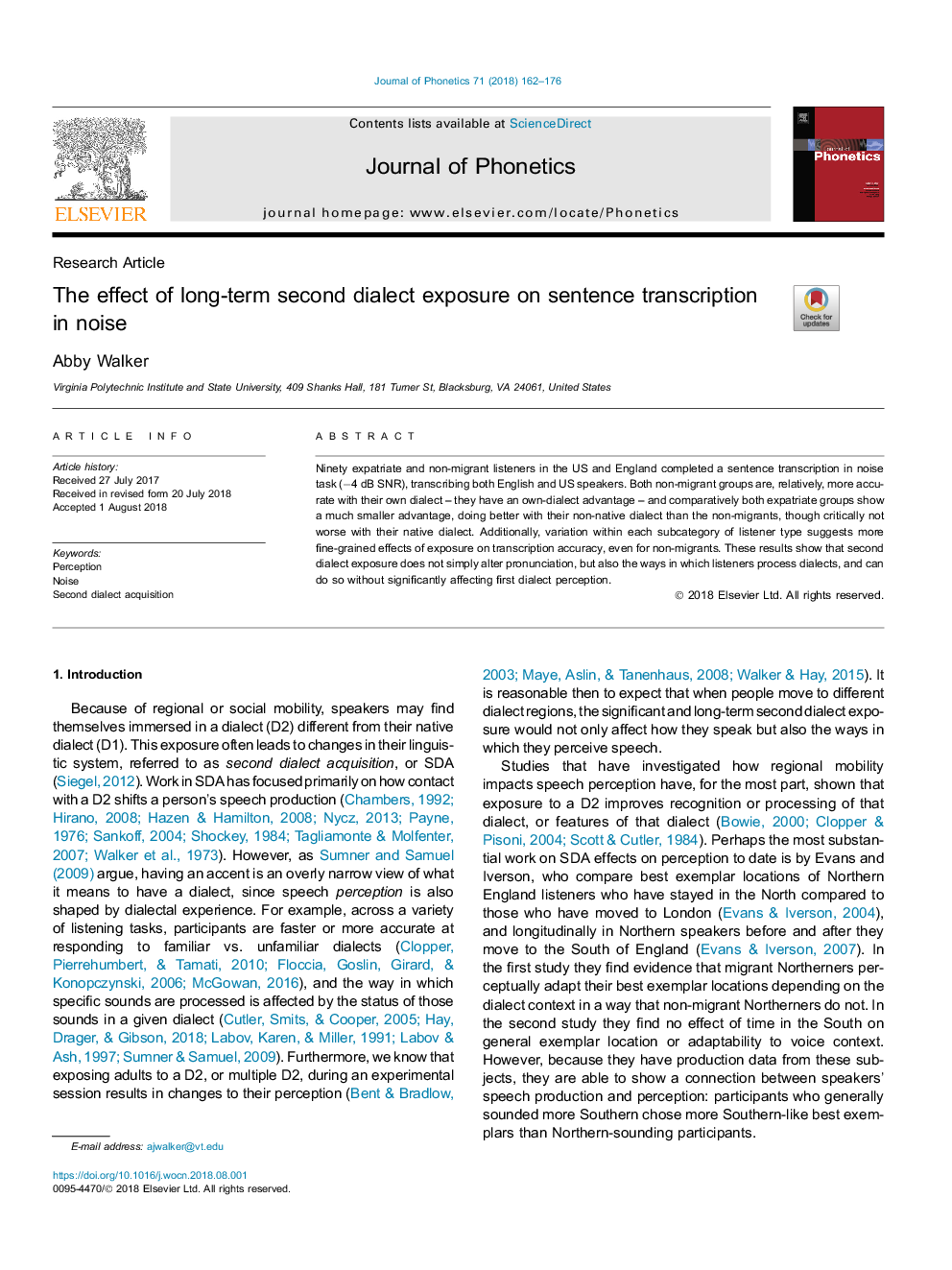| Article ID | Journal | Published Year | Pages | File Type |
|---|---|---|---|---|
| 11005575 | Journal of Phonetics | 2018 | 15 Pages |
Abstract
Ninety expatriate and non-migrant listeners in the US and England completed a sentence transcription in noise task (â4â¯dB SNR), transcribing both English and US speakers. Both non-migrant groups are, relatively, more accurate with their own dialect - they have an own-dialect advantage - and comparatively both expatriate groups show a much smaller advantage, doing better with their non-native dialect than the non-migrants, though critically not worse with their native dialect. Additionally, variation within each subcategory of listener type suggests more fine-grained effects of exposure on transcription accuracy, even for non-migrants. These results show that second dialect exposure does not simply alter pronunciation, but also the ways in which listeners process dialects, and can do so without significantly affecting first dialect perception.
Keywords
Related Topics
Social Sciences and Humanities
Arts and Humanities
Language and Linguistics
Authors
Abby Walker,
